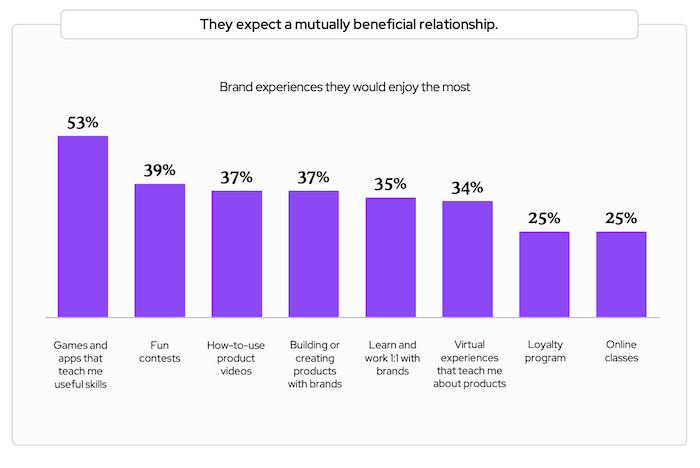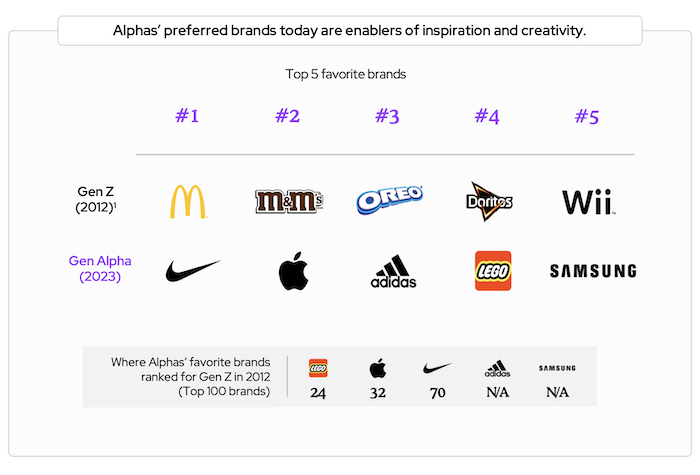While children born after 2010 do not yet represent independent spending power, they already demonstrate greater technical prowess than older generations. Moreover, the alpha generation does not place much emphasis on celebrities and athletes. They value content creators and influencers much more. This is according to a study conducted by Razorfish and GWI on a sample of 3,474 respondents.
The alpha generation is characterised by very easy access to technology and the media ecosystem, which fuels a wide range of interests and a thirst for knowledge. At the same time, however, today's kids are much more resistant to conventional marketing strategies - only 14% of respondents have chosen a brand based on its celebrity connection, a fifth have done so because of "really great ads" and only 21% look to athletes and celebrities as role models. They have a particularly low opinion of "TV people", people who are part of the news media, and find religious leaders the least trustworthy.
Conversely, they place more trust in content creators (36%), especially those whose activities help others (87%) and those who show reality, not perfection (86%). They favour quick, easily digestible and entertaining content.
Videos with various tips, tutorials or DIY ideas also play a major role with the alpha generation. As many as 86% would like their favourite brands to help them learn more about more things that interest them, and 81% like brands that make them feel part of a community. Alphists expect a win-win relationship from brands. They would appreciate games and apps that teach them useful skills (53%), fun contests (39%) or tutorials (37%).
 Source: Generation Alpha (Razorfish & GWI)
Source: Generation Alpha (Razorfish & GWI)Technology companies and brands that inspire and encourage creativity are particularly popular with Generation Alpha. Leading the way are Nike, Apple, Adidas, Lego and Samsung - by comparison, brands such as McDonald's, M&M's, Oreo, Doritos and Wii led the way for Generation Z in the 2012 survey.
 Source: Generation Alpha (Razorfish & GWI)
Source: Generation Alpha (Razorfish & GWI)Kids today spend a lot of time with technology. Up to 90% of them own a smartphone, 73% a laptop, 69% a games console, 64% a tablet and 33% a smartwatch. When browsing the internet, more than half (59%) search for what's cool and trendy, 58% for information about brands, and 56% for technology products. Even so, they discover new brands most often in brick-and-mortar stores and shopping malls.
The majority of parents (66%) of alpha generation children believe their offspring think more independently than they did at their age, 61% believe they learn more effectively and 60% see them as having more interests. Only 15% of alphas want to learn because they want to be the best, while more than a third (35%) do so because it is exciting to discover things they have not known before. Moreover, most of today's children are not afraid to make mistakes - 63% of them believe that making mistakes is part of learning. They use the aforementioned video content, friends, family, teachers or even artificial intelligence to learn, which has even overtaken books in preference.
"The alpha generation values quick tips, shortcuts and useful insights," the study says. "As such, marketers need to reflect this mindset and ensure that brand communications are served up through practical content that captures attention and fulfils the desire for quick and useful knowledge."
Source: mediaguru.cz

